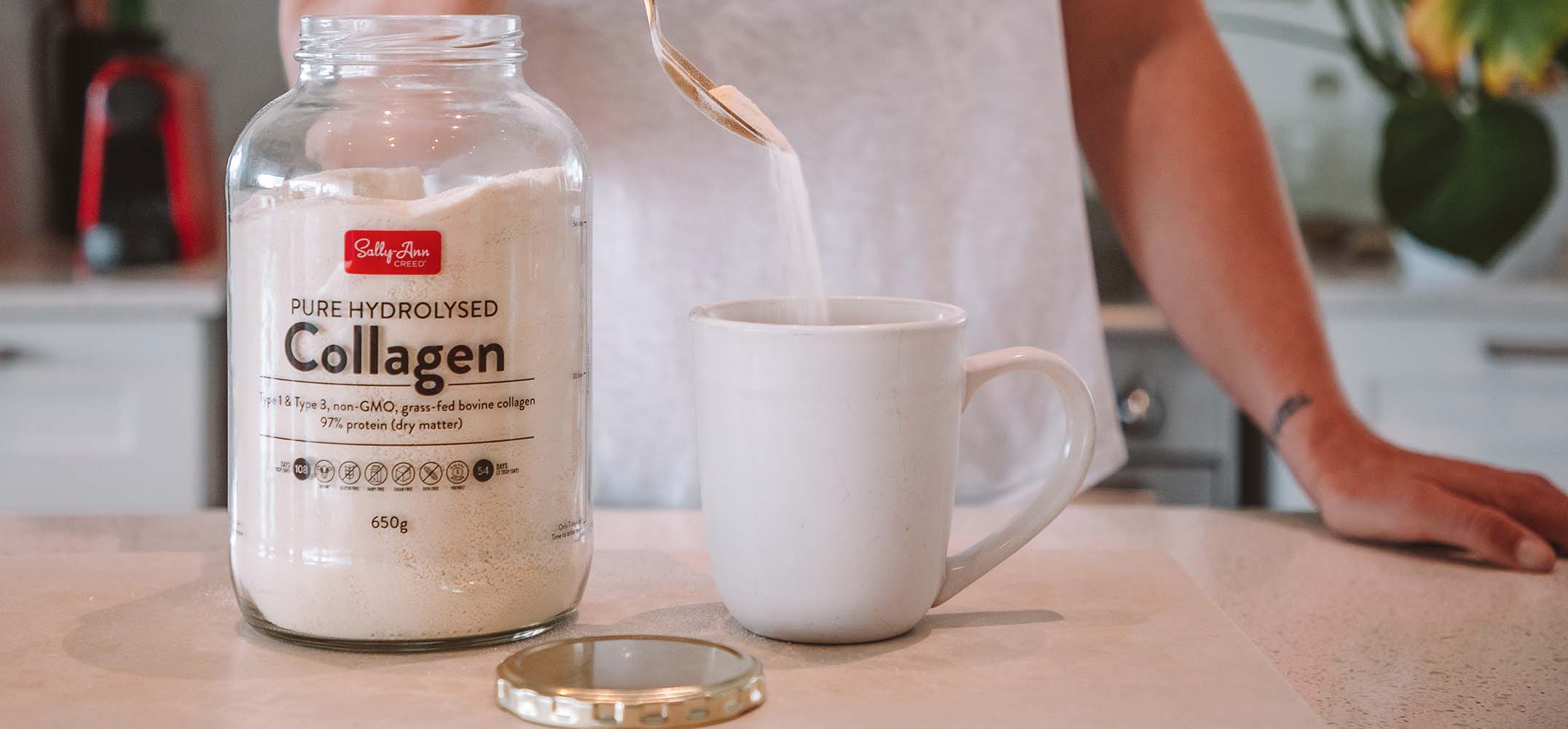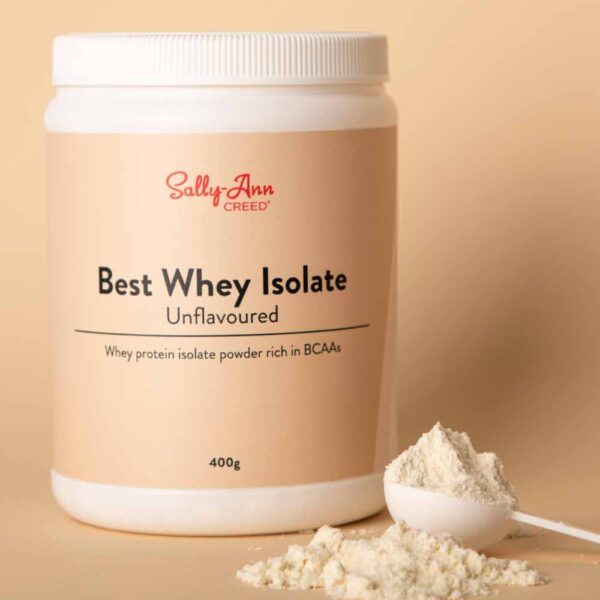We’ve been reading so many FALSE claims that collagen should not be added to hot drinks as it damages the collagen, rendering it ineffective. This is absolute nonsense, and we’re going to explain why in this article.
Native collagen, also called raw collagen, is extracted through a softening process which allows the collagen to separate from connective tissue. This is then extracted safely from raw materials (animal skin, bone and / or cartilage). This ‘raw’ collagen is actually quite a big molecule, and is formed by three chains that form a triple helix structure. Because of its spatial structure and high molecular weights, native collagen is naturally insoluble in water.
Collagen peptides however, are made from native / raw collagen that is then hydrolysed either through a chemical or enzymatic process. This means that the collagen is not ‘cooked’ in the same way as the gelatine is. Our Pure Hydrolysed Collagen is just that – nothing but pure hydrolysed collagen peptides, ready to be absorbed by our bodies. That leads us to how we take it.
Once collagen is completely hydrolysed, it’s easy to take because it dissolves in liquids and is virtually tasteless and odourless. A recent study has shown that hydrolysed collagen is only further affected by temperatures over 300ºC, which is way hotter than your coffee could ever be. What this really means is that there is nothing to be concerned about when it comes to adding collagen to hot drinks or even stews.
While we’re talking about coffee, we’ve also seen some articles stating that coffee prevents the absorption of collagen. This is also FALSE. Unfortunately people are misreading the study that shows how caffeine inhibits the body’s natural production of collagen, so it’s actually vitally important to supplement with collagen if you’re a coffee drinker.
This is why it’s very important that you get your information from trusted sources. So next time someone tells you that you shouldn’t be adding collagen to your coffee, or try to convince you of the danger of mixing collagen and heat, you can show them the real science!
Sources:
Donejko M, Przylipiak A, Rysiak E, Głuszuk K, Surażyński A. Influence of caffeine and hyaluronic acid on collagen biosynthesis in human skin fibroblasts. Drug Des Devel Ther. 2014 Oct 15;8:1923-8. doi: 10.2147/DDDT.S69791. PMID: 25342885; PMCID: PMC4206198.
Bozec L, Odlyha M. Thermal denaturation studies of collagen by microthermal analysis and atomic force microscopy. Biophys J. 2011 Jul 6;101(1):228-36. doi: 10.1016/j.bpj.2011.04.033. PMID: 21723833; PMCID: PMC3127184.







